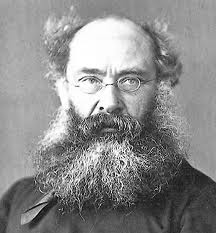 It was in the very dark and distant old days, before this blog was begun, when the earth was still hot, and etc, that I began on Trollope’s series. I think I started out of order with the Barchester novels, and then moved on to the Pallisers; and THE PRIME MINISTER’S CHILDREN is the last. Now all that lies before me is his stand-alone single books, re-reading of the series in retirement, and of course sad and lonely death.
It was in the very dark and distant old days, before this blog was begun, when the earth was still hot, and etc, that I began on Trollope’s series. I think I started out of order with the Barchester novels, and then moved on to the Pallisers; and THE PRIME MINISTER’S CHILDREN is the last. Now all that lies before me is his stand-alone single books, re-reading of the series in retirement, and of course sad and lonely death.
THE PRIME MINISTER’S CHILDREN is unfortunately the worst of the bunch. Or maybe it’s fortunate, because otherwise it would just be too sad to be finishing them at last. The story follows the main characters into their second generation, with all the romantic entanglements we remember from generation one. The Prime Minister’s children both want to marry people of whom he disapproves. The daughter wants to marry a boy without much income, and the son wants to marry an American. Cue heartbreak and distress. This sounds like the outline of a great and typical Trollope, so I am not quite sure why it is so unsuccessful. Perhaps it is in part because the narrative lacks drive; in part because Trollope struggles to pull together his multi-book themes; and in part because – very, very unusually for this author – a woman who tries to break the mould is bitterly defeated. Essentially the prime minister’s son is in love with this lady, Mabel, and she sort of half turns him down, because while she needs the money, she isn’t quite in love with him; and Trollope makes it all go horribly wrong for her from then on, at every turn.
Though I didn’t quite enjoy the book as a whole, I still enjoyed being embraced by Trollope’s warm and confident writer’s voice. Here he is, top of chapter:
Perhaps the method of rushing at once “in medias res” is, of all the ways of beginning a story, or a separate branch of a story, the least objectionable. The reader is made to think that the gold lies so near the surface that he will be required to take very little trouble in digging for it. And the writer is enabled,–at any rate for a time, and till his neck has become, as it were, warm to the collar,–to throw off from him the difficulties and dangers, the tedium and prolixity, of description. This rushing “in medias res” has doubtless the charm of ease. “Certainly, when I threw her from the garret window to the stony pavement below, I did not anticipate that she would fall so far without injury to life or limb.” When a story has been begun after this fashion, without any prelude, without description of the garret or of the pavement, or of the lady thrown, or of the speaker, a great amount of trouble seems to have been saved. The mind of the reader fills up the blanks,–if erroneously, still satisfactorily. He knows, at least, that the heroine has encountered a terrible danger, and has escaped from it with almost incredible good fortune; that the demon of the piece is a bold demon, not ashamed to speak of his own iniquity, and that the heroine and the demon are so far united that they have been in a garret together. But there is the drawback on the system,–that it is almost impossible to avoid the necessity of doing, sooner or later, that which would naturally be done at first. It answers, perhaps, for half-a-dozen chapters;–and to carry the reader pleasantly for half-a-dozen chapters is a great matter!–but after that a certain nebulous darkness gradually seems to envelope the characters and the incidents. “Is all this going on in the country, or is it in town,–or perhaps in the Colonies? How old was she? Was she tall? Is she fair? Is she heroine-like in her form and gait? And, after all, how high was the garret window?” I have always found that the details would insist on being told at last, and that by rushing “in medias res” I was simply presenting the cart before the horse. But as readers like the cart the best, I will do it once again,–trying it only for a branch of my story,–and will endeavour to let as little as possible of the horse be seen afterwards.
And then there is his wisdom. Here is a letter from poor defeated Mabel: “It is not the presence of the skeleton that crushes us. Not even that will hurt us much if we let him go about the house as he lists. It is the everlasting effort which the horror makes to peep out of his cupboard that robs us of our ease.”
Oh Anthony, I will miss you!
